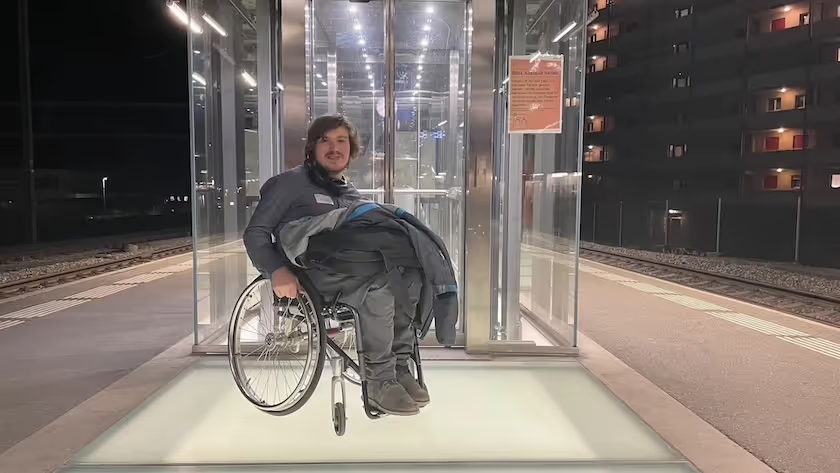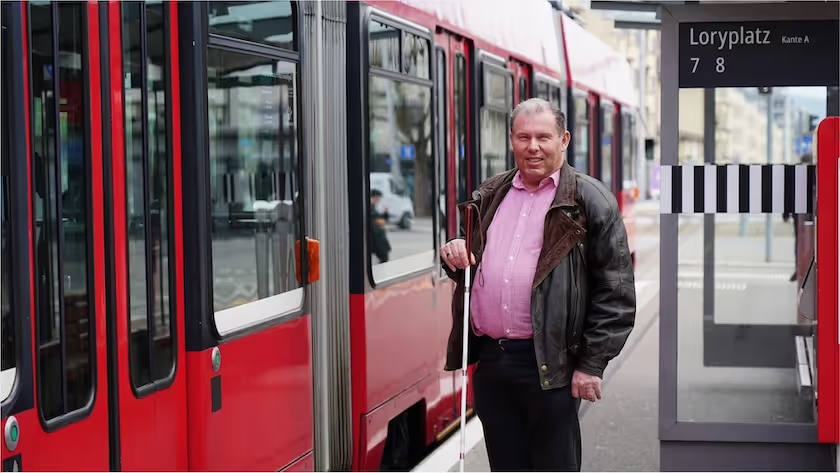Information enables reliable planning
Julian Heeb is the founder and head of development at Ginto. His mission: to provide objective information on the accessibility of museums, concert venues or restaurants as naturally as opening times. In doing so, he wants to simplify the leisure and everyday planning of people with mobility disabilities, such as himself. Julian explains how it works.
Travel planning as an obstacle course
Julian Heeb likes to travel a lot. And yet he realizes that with his wheelchair, the big, wide world often feels like an obstacle course. “I enjoy going on trips and trips — despite my mobility disability.” But planning plays a decisive role for Julian before the trip: “I depend on information about the accessibility of buildings, public transport, etc. Otherwise, traveling is only half as much fun,” he says. In the past, there was a rather cumbersome solution to this problem: “Pick up the phone or send an e-mail to the hotel. Sometimes information about accessibility is available on a booking platform, such as Booking.com.” What sounds simple and obvious often turns out to be a challenge in reality: “Either the data is not available at all. Or they may exist, but they are very unstructured. This means that I first have to think about how I interpret it — without knowing whether the interpretation is even correct,” says Julian.


“Thanks to Ginto, I get the necessary information quickly and easily and the data is easy to understand.”

Make good use of the opportunities offered by digitization
It makes sense to have accessibility data available before you travel, even in view of factors that cannot be influenced, such as the weather. “When it rains heavily, I am very happy to know that it is only a few meters from the train station to the restaurant, as it is not possible for me to stretch an umbrella. Then it is also very good to know beforehand whether the building is even accessible to me. In the worst case scenario, I would otherwise be sitting in front of a restaurant in torrential rain and would have to look for alternatives first. By the time I find something suitable, I'm soaking wet and frozen through, which is very unpleasant,” says Julian.
So it's good that the Sitios association, together with partners such as Pro Infimis, the AccessibilityGuide association The Barrier-Free Switzerland Association has tackled this problem and launched the ginto app. Julian agrees: “It is high time for structured, accessible data from all buildings and means of transportation. Thanks to ginto, I get the information I need faster and easier and, above all, the data is easy to understand. This allows me to plan my trips perfectly. Without constantly calling back and forth and collecting a wide variety of information and data.” Although ginto is not life-changing, it is a solution to a widespread problem. “Because it is not only people who are dependent on wheelchairs who are happy about uniform accessibility data. Exactly the same applies to parents with strollers, seniors and many more,” explains Julian. So what would Julian recommend to people who rely on accessibility data? He laughs: “Just try it out. Give feedback to the platform as it is still in its infancy. And very important: motivate companies that have not yet collected their accessibility information to participate. Because only when as many locations, buildings and means of transport as possible are recorded can the ginto app exploit its full potential.”









